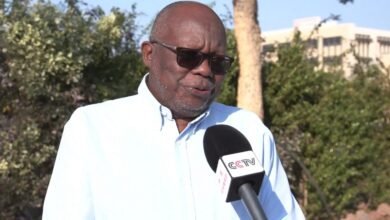
Rubis Energy Kenya has denied earlier reports that its Chief Executive Officer Jean Christian Bergeron was deported due to the biting fuel shortage that has gripped the country.
In a statement late night Thursday, the company said Christian traveled to Paris to provide a full update on the ongoing fuel situation in Kenya.
“We wish to clarify that the Group Managing Director Rubis Energy Kenya and CEO East Africa, Jean-Christian Bergeron, upon consultation with the Rubis Energy Head Office, travelled to Paris to provide a full brief on the situation in Kenya.”
On Wednesday evening, reports indicated that the CEO had been deported in what was termed as economic sabotage over fuel shortage that had hit the country.
“There is no update, the CEO of Rubis departed the country last night,” said Energy Cabinet Secretary Monica Juma Thursday, who also stayed clear whether Bergeron had been deported or not.
Rubis further said a spike in fuel demand locally for the past three months had caused the dire situation.
Fuel consumption in February according to Rubis was at 6.9 percent. This rocketed to 9.4 percent in March then up to 13.3 percent in April.
The company says it has maintained local sales with the split of domestic to export sales at 88 percent locally and 12 percent to markets outside Kenya in April.
The government has already paid Ksh.34.2 billion of the arrears owed to the fuel retailers over the course of the fuel shortage crisis in the country.
“We are in receipt of the full outstanding balance that is payable to the OMCs. As of yesterday (April 13) we had dispatched upwards of Ksh.34.6 billion since the program started last year and will continue with these disbursements once done with the administrative procedures,” said Juma.
This even as the government said it is expected to pay a further Ksh.14 billion to Oil Marketing Companies (OMCs) to cover arrears from the fuel subsidy.
Fuel prices in Kenya have already jumped by Sh9.90, the Energy and Petroleum Regulatory Authority (EPRA) announced in its April review.
In Nairobi, a litre of Petrol will go for Ksh.144.62, Diesel (Ksh.125.50) and Kerosene (Ksh.113.44).
The prices will be in place between April 15 and May 14, 2022.
According to EPRA, the Ksh.9.90 rise in price factors in the fuel subsidy programme by the government.





